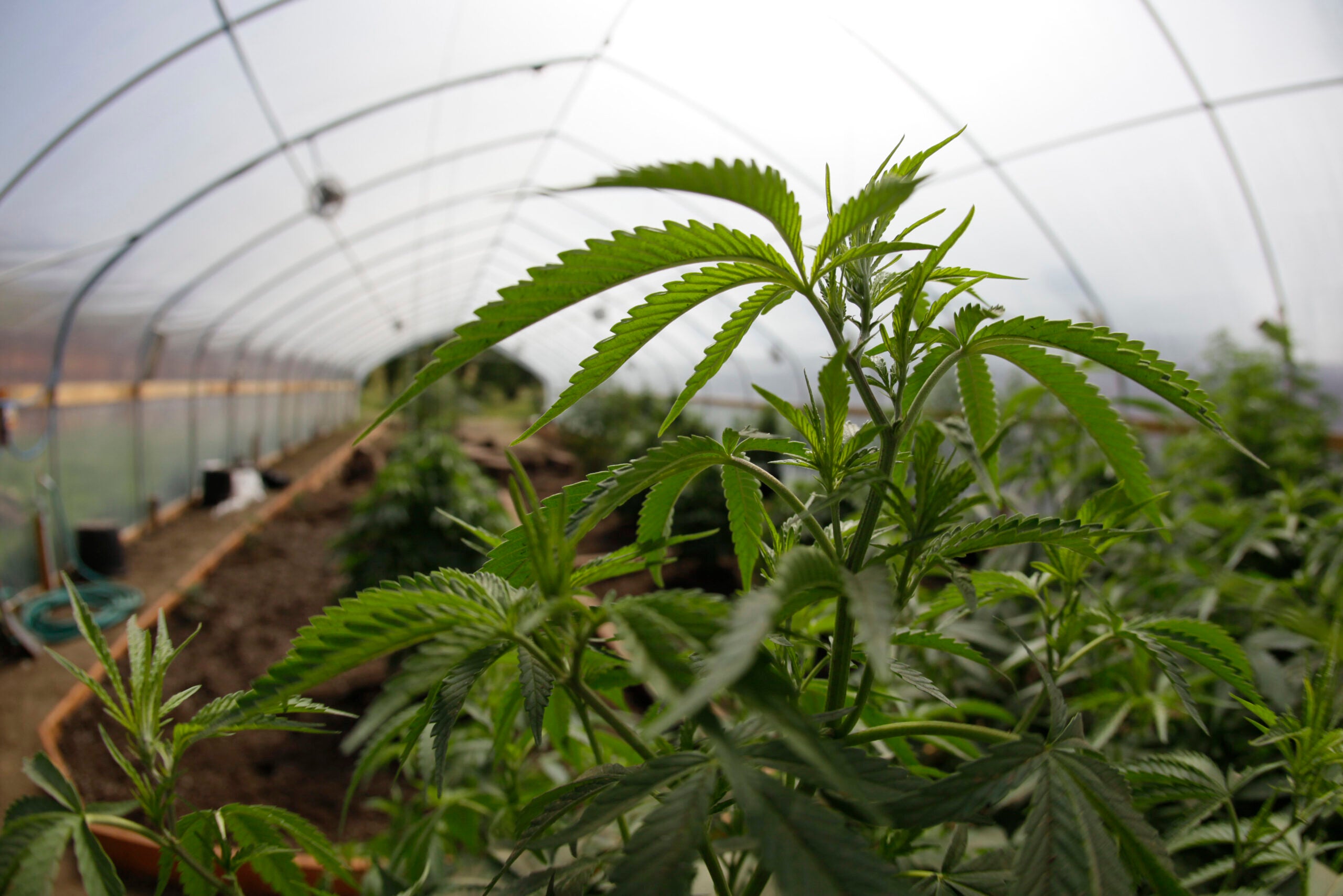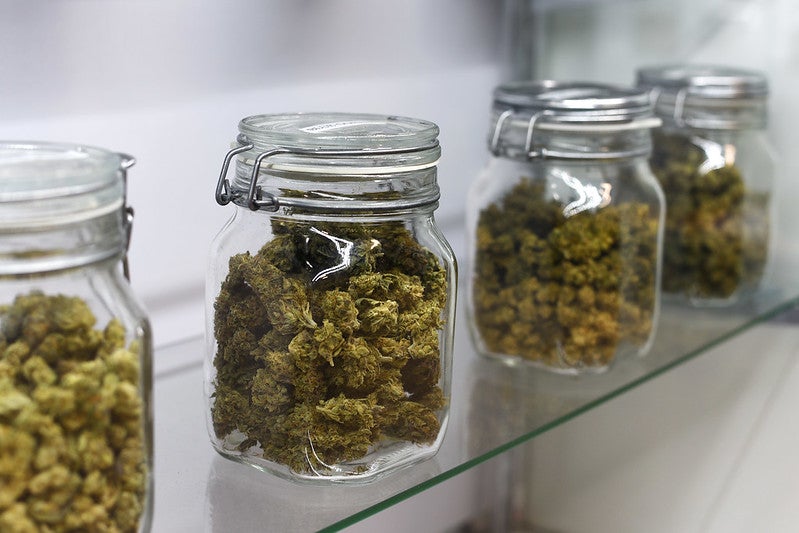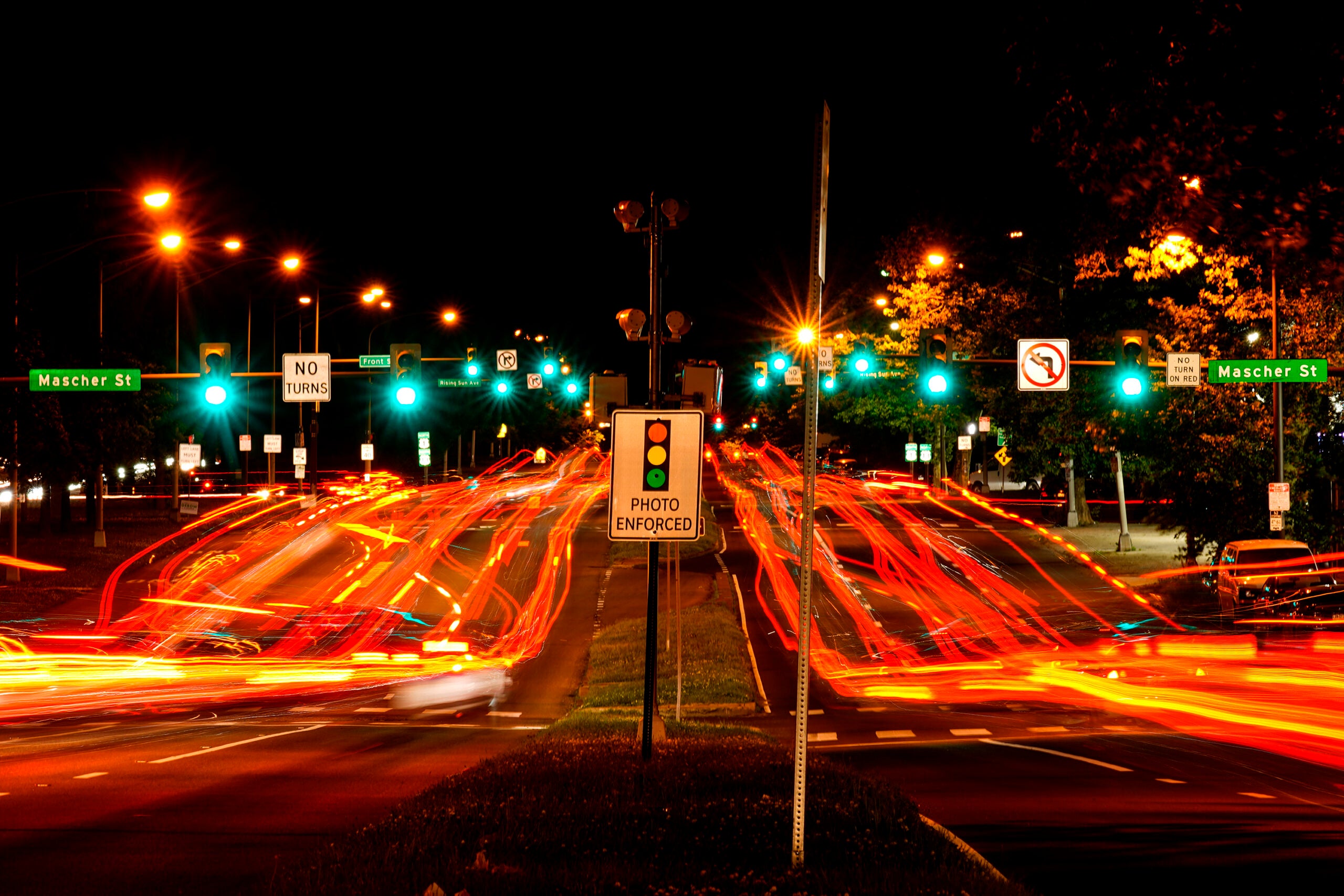Wisconsin backers of marijuana legalization say they’re glad to see the federal government recommend easing restrictions on the drug. But they don’t expect to see any sudden shift among Republican state lawmakers who have deadlocked on medical marijuana and oppose recreational use.
On Tuesday, the U.S. Department of Justice recommended changing the classification of marijuana, which begins a lengthy rule-making process that could eventually ease restrictions on production and research.
Currently, the Drug Enforcement Administration lists marijuana as a schedule I drug, which places it on the same level as drugs like heroin and LSD. The DOJ is recommending moving it to a schedule III classification, which would place it in the same category as ketamine, anabolic steroids and Tylenol with codeine.
News with a little more humanity
WPR’s “Wisconsin Today” newsletter keeps you connected to the state you love without feeling overwhelmed. No paywall. No agenda. No corporate filter.
While a reclassification would be a major change in federal policy, supporters of full legalization in Wisconsin don’t expect to see any sudden change of heart among Republican state lawmakers who have strongly opposed full legalization and have been unable to find consensus within their own party on making it legal for medical use.
Wisconsin Cannabis Activist Network Director Jay Selthofner says a federal reclassification will have no bearing on whether states can legalize marijuana.
“What I think it would do is open up cannabis research on a federal basis, with the less restrictive classification schedule that it’s in,” Selthofner said.
As of April, the National Conference of State Legislatures reports 38 states allow the use of medical cannabis products and 24 states have passed laws allowing recreational use of marijuana. Since 2018, Illinois, Michigan and Minnesota have legalized recreational pot.
Polling from the Marquette University Law School shows a notable shift in views on legalization over the past decade. In 2013, 50 percent of respondents said they favored making marijuana legal in Wisconsin, while 45 percent were opposed. This January, 63 percent supported full legalization and 29 percent were opposed.
When it comes to medical marijuana, the January survey found 83 percent of respondents said it should be legal for medical purposes and just 12 percent were opposed.
Wisconsin State Sen. Melissa Agard, who has been been at the forefront of the push for full legalization in Wisconsin, said she’s happy the federal government is reconsidering its cannabis policy. She expects the change may create more opportunities for Democrats and Republicans to reach consensus on the drug in the future.
“One of the things that I’ve heard from my colleagues on the other side of the aisle standing in the way is the federal government and the classification of this plant,” Agard said. “So that, in conjunction with more fair (legislative) maps and hopefully a more pragmatic Legislature in 2025, I do have hope that finally, the will of the people of Wisconsin will be able to be addressed, and Wisconsin will no longer be an island of prohibition when it comes to cannabis.”
In January, Wisconsin Republicans introduced a bill that would have launched a small-scale, state-run medical marijuana program. But they were clear that it would not lead to legalizing recreational use. The bill would have limited use of the drug to patients with certain diagnosed medical conditions, such as cancer, seizure conditions, multiple sclerosis and chronic pain. The types of marijuana approved would also be restricted to edibles and oils, not smokable products.
Republican Assembly Speaker Robin Vos, R-Rochester, said at the time Wisconsin’s proposal would “probably be the most restrictive” medical marijuana program in the U.S.
The bill hit a roadblock when State Senate Majority Leader Devin LeMaheiu, R-Oostburg, said the creation of state-run dispensaries was a “nonstarter” in his caucus. Vos responded by saying he would not compromise with senate Republicans.
“When Republicans say they are introducing a bill and then they introduce it and it goes nowhere, they’re doing that simply because they want to put a bullet point on their campaign literature as opposed to actually provide policy reform that will move Wisconsin forward and protect more people,” Agard said.
She said Wisconsinites want to be able to grow their own marijuana and purchase it “for responsible adult usage,” while the state could generate substantial tax revenues from pot sales.
Neither Vos, Democratic Gov. Tony Evers or Wisconsin Attorney General Josh Kaul responded to WPR requests for comment on the federal recommendations to reclassify the drug.
A Wisconsin Department of Revenue fiscal estimate tied to a 2023 bill to fully legalize marijuana suggested the state could see nearly $65 million from a 10 percent excise tax on dispensaries within three years.
Wisconsin Public Radio, © Copyright 2025, Board of Regents of the University of Wisconsin System and Wisconsin Educational Communications Board.







